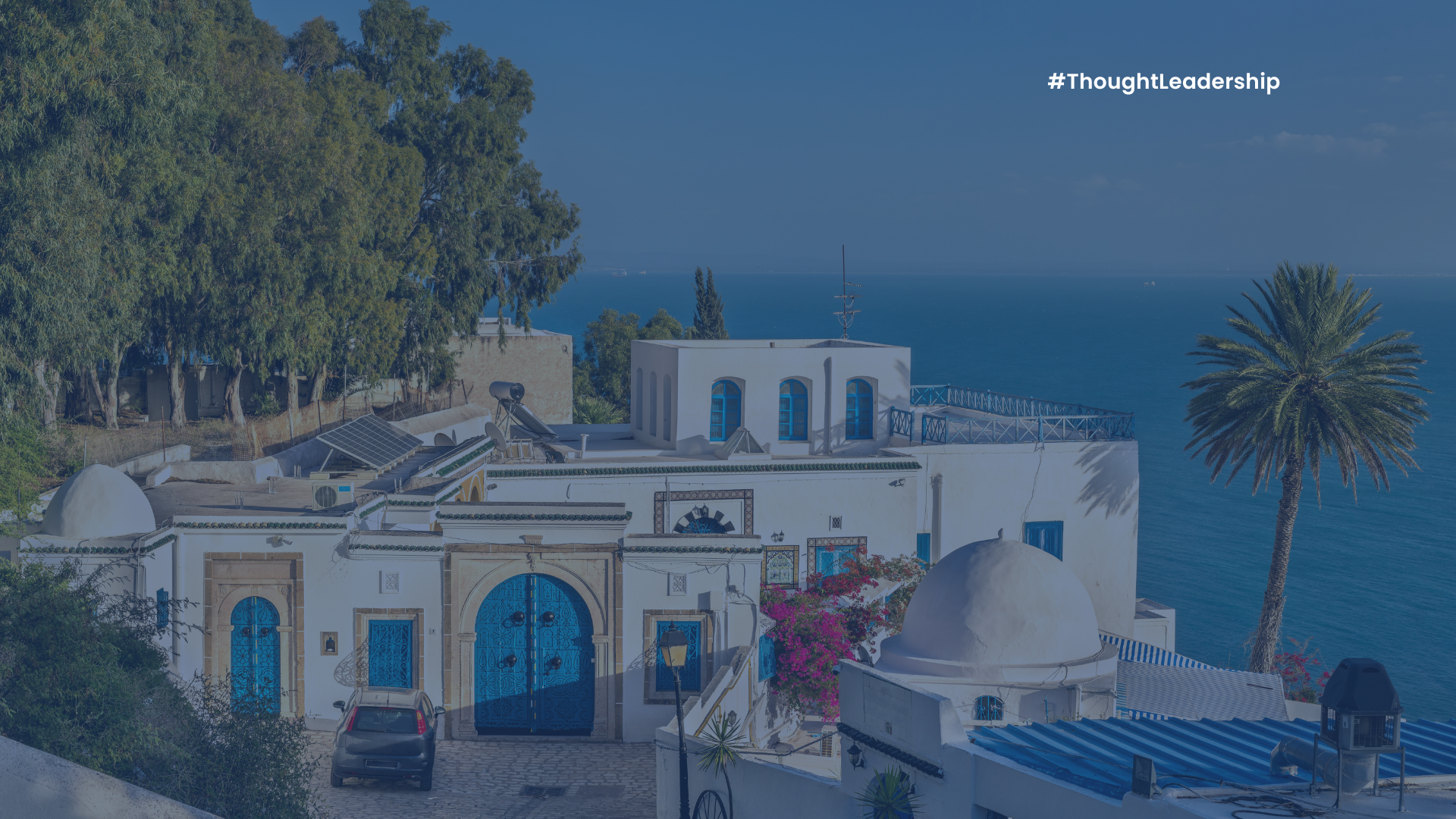
- 07 Apr 2025
Tunisia is becoming a North African leader in green innovation through diverse eco-friendly projects that are not only designed to protect the environment but also to drive sustainable economic development. Tunisia is harnessing its abundant natural resources to drive a sustainable future. These efforts span various sectors, from harnessing solar power and eco-tourism to urban greening all contributing to Tunisia’s vision of a greener future.
Solar Power: Harnessing the Sun’s Potential
With its abundant sunshine and vast open spaces, Tunisia is strategically capitalizing on solar energy to power its future. The Tunisian Solar Program (TSP) aims to increase the share of renewable energy in electricity production from just 3% in 2016 to 30% by 2030, with 10% of that specifically from solar energy. Tunisia’s solar projects, such as the 100 MW Photovoltaic (PV) Solar Power Plant in Kairouan and two 50-MW grid-connected solar power plants in Sidi Bouzid and Tozeur, play a pivotal role in this ambitious plan. The Kairouan plant, for example, is expected to generate 230 GWh annually, while the projects in Sidi Bouzid and Tozeur are projected to reduce greenhouse gas emissions by 108,000 tons of CO2 equivalent each year.
Additionally, the Tozeur Solar Power Plant, located in the heart of the Sahara, exemplifies how Tunisia is utilizing its natural resources to generate clean energy for thousands of homes, further contributing to the country’s renewable energy goals.
These large-scale solar farms are not only helping Tunisia reduce its carbon footprint and dependence on fossil fuels but are also contributing to the country’s broader economic goals. By 2030, Tunisia aims to achieve 35% renewable energy capacity in its electricity system, with the potential to reach 50% by 2035.
Eco-Villages: Sustainable Living and Eco-Tourism
Eco-tourism is becoming an important sector of Tunisia’s green economy, with several projects focused on sustainable living and environmental conservation. One notable initiative is the transformation of the island of Djerba into an all-LED island, aimed at promoting green tourism through the use of energy efficient lighting systems. Tunisia is also home to many private eco-village hotels which are embracing sustainability. These eco-villages serve as both a sustainable living model and an eco-tourism destination, offering visitors a chance to experience environmentally friendly living while minimizing their carbon footprint.
The eco-villages feature solar panels, water saving initiatives, and energy efficient buildings that help reduce energy consumption. The success of these projects showcases Tunisia’s commitment to sustainability and its desire to promote alternative tourism models that protect the environment and offer new experiences for eco-conscious travelers.
Sustainable Urban Gardening: Greening the Cities
Urban gardening has flourished in Tunisia’s major cities, where creative initiatives are transforming rooftops and unused spaces into green oases. In Tunis, for example, many residents have embraced rooftop gardening, cultivating organic produce while simultaneously cooling down the urban environment. These gardens not only provide food security by offering locally grown food but also help combat the high temperatures and poor air quality commonly associated with urban areas. Urban gardening also promotes sustainability by addressing food waste. Many residents use composting methods to recycle organic waste, enriching their plants while reducing landfill contributions.
There is also a huge focus on urban sustainability through the National Program for Sustainable Cities. This program targets 14 cities, including Zaghouan, Kasserine, and Kairouan, with the goal of implementing energy-efficient and eco-friendly urban solutions.
A notable project in Kairouan is working toward transforming the city into a sustainable urban hub through energy efficiency measures. These initiatives align with Tunisia’s National Strategy on the Green Economy, which addresses sustainable agriculture, waste management, and green infrastructure. The move toward sustainable cities reflects the government’s recognition of the importance of integrating environmental considerations into urban development.
Quirky Inventions: Green Walls Made from Recycled Plastic
Tunisia is home to several creative, eco-friendly inventions that are helping to reduce waste and enhance urban landscapes. One such innovation is the Green Wall, a vertical garden constructed from recycled plastic, including colorful plastic bottles. These walls, which are popping up in cities like Tunis, serve multiple purposes: they add aesthetic value to urban spaces, help combat pollution, and improve air quality. By repurposing waste materials into beautiful and functional installations, Tunisia is leading the way in turning waste into a valuable resource.
These Green Walls are not only environmentally beneficial but also provide a visually striking solution to urban pollution. They demonstrate how creative thinking and sustainable practices can transform waste into a resource while improving the quality of life for urban residents.
A Green Revolution in the Making
Tunisia is on a path toward becoming a leader in green innovation, with a robust commitment to renewable energy, sustainable tourism, urban greening, and eco-entrepreneurship. By leveraging its natural resources, strategic location, and growing class of local innovators, the country is positioning itself at the forefront of the global green economy. As Tunisia continues to make progress toward its ambitious sustainability goals, it is not only enhancing its environmental footprint but also driving economic growth and positioning itself as a key player in the renewable energy sector.
With the right policies, investment, and innovation, Tunisia’s green revolution promises a bright and sustainable future, powered by clean energy, eco-tourism, and a thriving green economy.